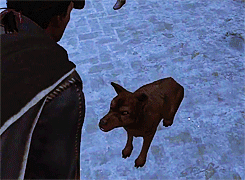Once again, nothing much tops the shenanigans of the Texas Capitol this week when it comes to WTF, but here are a few stories that I caught.
– First up, an awesome story: Christina Stephens, who lost her left leg in a “foot crush injury,” has built a prosthetic limb for herself out of LEGO bricks.
![National Park Service [Public domain], via Wikimedia Commons National Park Service [Public domain], via Wikimedia Commons](http://crypticphilosopher.com/wp-content/uploads/2013/07/800px-Trail_of_tears_map_NPS-300x147.jpg)
National Park Service [Public domain], via Wikimedia Commons
– Tulsa, Oklahoma is considering a bid to host the 2024 Summer Olympics, which
Deadspin calls
“adorable.” What makes it WTF-worthy is that the city is reportedly using the Trail of Tears in its bid,
as a selling point.
In a nod to the state’s American Indian history, the Olympic torch would be led along the solemn Trail of Tears, not far from where field hockey would be played in Tahlequah.
Just to bring you up to speed on that bit of American history, here’s what the National Park Service has to say about it:
In 1838, the United States government forcibly removed more than 16,000 Cherokee Indian people from their homelands in Tennessee, Alabama, North Carolina, and Georgia, and sent them to Indian Territory (today known as Oklahoma).
The impact to the Cherokee was devastating. Hundreds of Cherokee died during their trip west, and thousands more perished from the consequences of relocation. This tragic chapter in American and Cherokee history became known as the Trail of Tears, and culminated the implementation of the Indian Removal Act of 1830, which mandated the removal of all American Indian tribes east of the Mississippi River to lands in the West.
And there’s this from PBS:
The Cherokee, on the other hand, were tricked with an illegitimate treaty. In 1833, a small faction agreed to sign a removal agreement: the Treaty of New Echota. The leaders of this group were not the recognized leaders of the Cherokee nation, and over 15,000 Cherokees — led by Chief John Ross — signed a petition in protest. The Supreme Court ignored their demands and ratified the treaty in 1836. The Cherokee were given two years to migrate voluntarily, at the end of which time they would be forcibly removed. By 1838 only 2,000 had migrated; 16,000 remained on their land. The U.S. government sent in 7,000 troops, who forced the Cherokees into stockades at bayonet point. They were not allowed time to gather their belongings, and as they left, whites looted their homes. Then began the march known as the Trail of Tears, in which 4,000 Cherokee people died of cold, hunger, and disease on their way to the western lands.
This kind of puts the 1996 Atlanta Summer Olympics in a different perspective.
– A Belgian diplomat and his wife apparently found themselves at the center of a terrorism investigation, of sorts, after she tried to breastfeed their baby in a posh country club while in possession of a black backpack. Accounts differ over what exactly happened, but a police officer allegedly told the woman, “In Sri Lanka, babies are used by terrorists…You have to understand, this club has had terrorism threats in the past.” So babies are precious gifts and terrorist accoutrements, I guess.
Photo credit: National Park Service [Public domain], via Wikimedia Commons.
 My wife and I decided to spend New Year’s Eve watching
My wife and I decided to spend New Year’s Eve watching 

![By Wiki nol ege [GFDL (http://www.gnu.org/copyleft/fdl.html) or CC-BY-SA-3.0 (http://creativecommons.org/licenses/by-sa/3.0)], via Wikimedia Commons 20131226-112955.jpg](http://crypticphilosopher.com/wp-content/uploads/2013/12/20131226-112955.jpg) I have used Chatroulette exactly once, out of morbid curiosity. After being “nexted” 4-5 times by bored-looking dudes who were disappointed (either because I don’t have breasts or because I wasn’t showing what I do have—I don’t know & I don’t judge), I decided it wasn’t really my scene. It has led to a few
I have used Chatroulette exactly once, out of morbid curiosity. After being “nexted” 4-5 times by bored-looking dudes who were disappointed (either because I don’t have breasts or because I wasn’t showing what I do have—I don’t know & I don’t judge), I decided it wasn’t really my scene. It has led to a few 

![GrahamColm at en.wikipedia [CC-BY-SA-3.0 (http://creativecommons.org/licenses/by-sa/3.0) or GFDL (http://www.gnu.org/copyleft/fdl.html)], from Wikimedia Commons GrahamColm at en.wikipedia [CC-BY-SA-3.0 (http://creativecommons.org/licenses/by-sa/3.0) or GFDL (http://www.gnu.org/copyleft/fdl.html)], from Wikimedia Commons](http://crypticphilosopher.com/wp-content/uploads/2013/09/800px-Phage_injecting_its_genome_into_bacterial_cell-300x225.png)

![National Park Service [Public domain], via Wikimedia Commons National Park Service [Public domain], via Wikimedia Commons](http://crypticphilosopher.com/wp-content/uploads/2013/07/800px-Trail_of_tears_map_NPS-300x147.jpg)